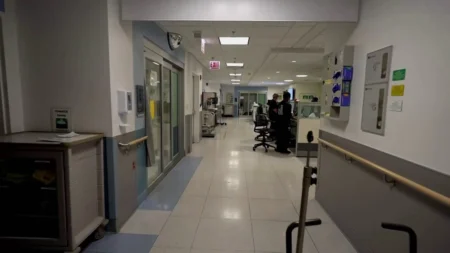Ghana is facing a serious healthcare crisis. Over 70,000 trained health graduates are still unemployed, despite a shortage of healthcare services in many parts of the country. This figure is more than double previous estimates and shows how deep the problem has become.
The Minister for Health, Kwabena Mintah Akandoh, shared these troubling numbers in Parliament. He confirmed that many trained professionals, including nurses, doctors, and pharmacists, are still waiting for jobs in the public health system.
Nurses make up the largest group of unemployed health workers. A total of 48,878 nurses from different batches between 2021 and 2023 have not yet been placed. The numbers include:
- 15,947 nurses from 2021
- 17,176 nurses from 2022
- 15,755 nurses from 2023
Although about 15,000 nurses were given financial clearance in December 2024, they have not yet been added to the government payroll. This means their employment is still not confirmed.
The situation is worse for allied health professionals. More than 21,570 people trained as lab technicians, physiotherapists, radiographers, nutritionists, and others remain unemployed. No financial clearance has been given for this group since 2019. This five-year gap has caused a major backlog and increased brain drain in these fields.
Pharmacists have also been hit hard. Around 1,621 licensed pharmacists are still waiting for job placements. Ghana has only about 4,500 working pharmacists, with one pharmacist serving nearly 7,500 people—far below global standards.
Even trained medical doctors are not spared. Over 900 doctors, despite the country’s need for more physicians, are unemployed and awaiting recruitment. Ghana produces 500 to 600 new doctors each year from public medical schools.
Ghana’s healthcare worker-to-patient ratios remain below international standards. The current doctor-to-patient ratio is 1:8,000, while the World Health Organization recommends 1:1,000. Nurse-to-patient ratios are also poor, especially in rural areas where health services are limited.
Minister Akandoh admitted the scale of the problem, saying it is large and complex. However, he assured Parliament that the government is working to fix it.
As a temporary solution, the government is now exploring “managed migration.” This plan would allow health professionals to work in countries where their services are needed. In return, Ghana could benefit from remittances and the international experience gained by these professionals.
So far, more than 13 countries have shown interest in hiring Ghanaian nurses and other trained health workers. These include nations like the UK, Canada, and Germany, which are currently facing their own healthcare staffing shortages.
The government’s new strategy is twofold. First, it wants to reduce the growing number of unemployed professionals. Second, it aims to improve healthcare across Ghana by placing trained staff where they are most needed.
This approach could help meet urgent healthcare needs while also giving professionals a chance to use their skills. But experts say more must be done to match the number of trained graduates with available jobs.
A long-term plan is needed—one that connects training programs with real hiring capacity and the country’s health priorities.







